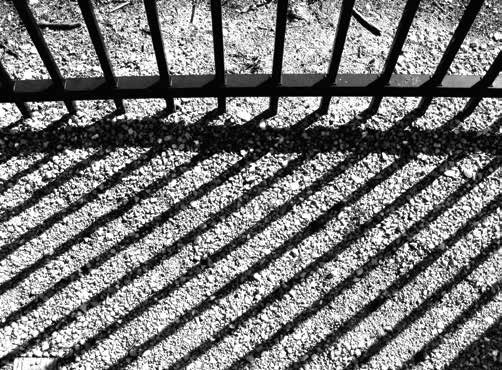Changing our perception of deprivation of freedom
By bringing together various professionals and former detainees, the new “Droits debout” (Upright Rights) university certificate gives multidisciplinary insight into the fundamental right of persons deprived of their freedom
Education Faculty of Law Education
updated on 27 March 2023
UCLy
“Droits debout” became a university certificate as a result of the keen interest shown by a large number of students and professionals.
The course is organised by the Institute of Family Sciences (Institut des Sciences de la Famille) and the Laboratory of Human Research (Laboratoire de Recherche sur la Personne). The certificate is impelled by
a deep conviction shared by its joint organisers, Alexandre Delavay, member of the bar of Paris and former UCLy student, and research professor Marion Wagner: the change of perception regarding imprisonment will depend in particular on the training received by younger generations, all being citizens and mostly destined to be future legal practitioners and government officials.

Countering custodial dehumanisation
The course owes its name to the wish to see that the “rights” of persons deprived of freedom are respected, to ensure that these vulnerable individuals remain “upright” despite their imprisonment, a situation that overwhelms both the body and mind. “Droits debout” is also in line with the duty of remembrance and open learning that drives Lyon Catholic University. Although classrooms have replaced the high walls of the “Devil’s Pot” since 2015, the memory of both this place of suffering and resistance as well as its occupants must endure, and be passed on to future generations. Drawing on this extra measure of noble heartedness, “Droits debout” also has an academic and scientific goal. The training programme opened this year with an inaugural conference by Professor Jean-Marie Gueullette on the origins of prisons in France. During the course’s theme-based days this year, the certificate brought together witnesses, practitioners (lawyers, magistrates, those in charge of managing prisons) and academics from all walks of life, and always in the presence of former detainees. The aim is to give future professionals, and those who are already working, a comprehensive and multidisciplinary vision of the fundamental rights of prison populations.
“The course’s theme-based days bring together witnesses, practitioners (lawyers, magistrates, those in charge of managing prisons) and academics from all walks of life, and always in the presence of former detainees.”
Deeply committed contributors and themes anchored in reality
To achieve this goal, this demanding programme is based on novel content that changes from day to day: content that is useful to practitioners directly related to prison life, and that ensures that all the people concerned get to have their say. Every day includes the testimony of a former detainee, the development of the legal framework that applies to the subject at hand, its challenges and difficulties (“What is the legal position?”); then a perspective on the situation in the form of onsite feedback on practices (“What happens in practical terms?”).
Chosen themes are anchored in reality, and are those that generate the most concrete questions in prisons: the right to work, the right to express oneself, and the right to freedom of belief being just a few examples. The days’ activities are entrusted to officials acknowledged for their great expertise in the subject in question. As for speakers, all are specialised in the issues at hand, and represent the wide diversity of profiles interested in the subject of deprivation of freedom: former detainees, lawyers, magistrates, academics, association workers, chaplains, prison staff, and health professionals, etc.
“The change of perception regarding imprisonment depends in particular on the training received by younger generations, all being citizens and mostly destined to be future legal practitioners and government officials.”
A wide variety of actors to ensure the sustainability of the project
We’re ready to bet that “Droits debout”, which is supported by UCLy and its values, will be training lawyers, magistrates, prison staff, and association workers, present and future, for a long time to come in order to ensure that the population at large sees these invisible people who have been deprived of their freedom as vulnerable people.